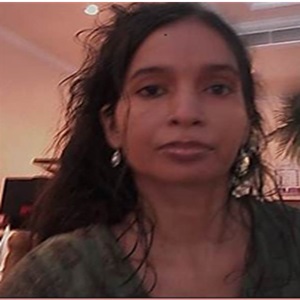Abstract Detail

Saumya Pandey
Indira IVF Hospital, India
Abstract
Objectives: Breast cancer is a leading cause of morbidity and mortality in women worldwide. Breast screening in normal and/or asymptomatic women is essential to reduce the burden of breast malignancies. My study aimed to identify possible risk- and/or co-factors associated with breast screening in North Indian women. Methods: A public health preventive breast oncology nursing epidemiology study was conducted among 100 women of North Indian ethnicity residing in Lucknow, Uttar Pradesh, India. Demographic and clinical data, including mammography screening, were recorded in the questionnaire-based proforma after conducting a 10 minute interview. Written informed consent was taken from all the participants with assistance of registered nurse practitioners. Results: The mean age of the participants was 32.2±9.9 years. Out of 100 women, 6% had family history of breast disease. Breast-related complaints/malignancy, including galactorrhoea, mastitis, axillary lump, fibrocystic disease, fibroadenosis and adenocarcinoma were observed in 41% participants; age stratification revealed that 82.9% of this group (n=41) were <30 years, while 9.7% and 7.3% were >30 years and 30 years of age, respectively. 32% participants underwent mammography screening and 8% had breast ultrasound imaging. Age stratification in mammography screening group demonstrated that 24 women were <40 years, while 7 women were >40 years. Conclusions: My pilot study identified possible co-factors affecting breast screening in North Indian women. These findings may be beneficial in early detection of breast abnormalities, including malignancies in women susceptible to breast cancer, and aid in future design of cost-effective screening strategies and predictive biomarkers to reduce the increasing burden of breast carcinoma in women worldwide. There is an urgent need of tailor-made personalized fertility preservation treatment modalities in breast cancer management amongst reproductive-aged women of ethnically disparate cohorts; public health research collaborations amongst radiation oncologists, infertility/reproductive medicine experts and nursing caregivers are warranted to promote breast cancer awareness, cancer-risk assessments, regular follow-up and surveillance of adverse effects of cytotoxic agents/drugs’-based treatment-related reproductive risks in women undergoing radiation therapy/polychemotherapy.
Biography
Dr. Saumya Pandey possesses brilliant academic credentials with earned Post-Doctorate:Biochemistry-Molecular Biology, Graduate School of Biomedical Sciences, University of Texas Medical Branch (UTMB), Galveston, TX, USA/Visiting Scientist: Urology (Robotic-Prostatectomy), James Buchanan Brady Foundation,-Lefrak Center of Robotic Prostatectomy, Department of Urology, New York Presbyterian-Weill Cornell Medical College, New York, NY, USA/Doctorate: Ph.D. Life Sciences, Sanjay Gandhi Post Graduate Institute of Medical Sciences, Lucknow, UP, India–ChhatrapatiShahujiMaharaj University, Kanpur, UP, India/Doctoral Research Fellowship:Biomedical Sciences, Creighton University, Omaha, Nebraska, USA/M.Sc. Biochemistry, University of Lucknow, Lucknow, UP, India, and recently worked as Head-Clinical Research, IndiraIVF-Hospital, Udaipur-Lucknow, India with 66 scientific publications in international journals.
